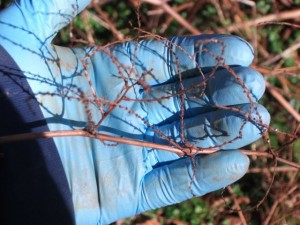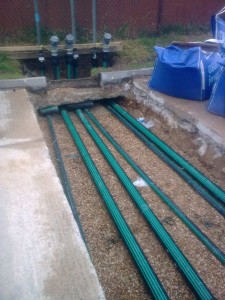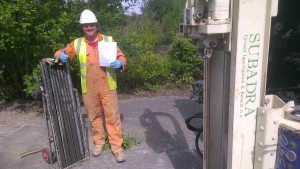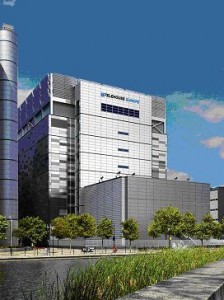 Japanese knotweed is is a highly invasive plant found throughout the UK. It is capable of growing 10cm per day, breaking though weaknesses in buildings, foundations, concrete and tarmac.
Japanese knotweed is is a highly invasive plant found throughout the UK. It is capable of growing 10cm per day, breaking though weaknesses in buildings, foundations, concrete and tarmac.
Whilst physical damage to foundations and structures is the most visible problem associated with a knotweed infestation, its presence can also lead to significant reductions in land value and restrictions on redevelopment. Planning authorities will require the eradication of knotweed as a planning condition that must be completed prior to development.
During a recent site visit to scope demolition and site remediation works we identified a clump of knotweed. Our client was intending to purchase the site and the knotweed’s presence had not been picked up by their valuation survey.
The projected costs for dealing with the knotweed we identified was ~£30k. With our assistance our client was able to negotiate a reduction in purchase price to offset the necessary remedial costs. Our client has since purchased the site and we managed the knotweed remediation as part of the wider site clearance works. The works were completed on time and on budget and come with a 10year guarantee.
Would you recognise a knotweed rhizome? If not, call us to arrange a site survey. Contact James Edley – Tel: 01296 739412




